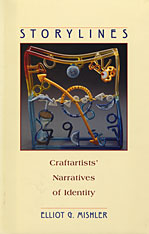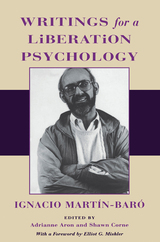
Interviews hold a prominent place among the various research methods in the social and behavioral sciences. This book presents a powerful critique of current views and techniques, and proposes a new approach to interviewing. At the heart of Elliot Mishler’s argument is the notion that an interview is a type of discourse, a speech event: it is a joint product, shaped and organized by asking and answering questions.
This view may seem self-evident, yet it does not guide most interview research. In the mainstream tradition, the discourse is suppressed. Questions and answers are regarded as analogues to stimuli and responses rather than as forms of speech; questions and the interviewer’s behavior are standardized so that all respondents will receive the same “stimulus”; respondents’ social and personal contexts of meaning are ignored. While many researchers now recognize that context must be taken into account, the question of how to do so effectively has not been resolved. This important book illustrates how to implement practical alternatives to standard interviewing methods.
Drawing on current work in sociolinguistics as well as on his own extensive experience conducting interviews, Mishler shows how interviews can be analyzed and interpreted as narrative accounts. He places interviewing in a sociocultural context and examines the effects on respondents of different types of interviewing practice. The respondents themselves, he believes, should be granted a more extensive role as participants and collaborators in the research process.
The book is an elegant work of synthesis—clearly and persuasively written, and supported by concrete examples of both standard interviewing and alternative methods. It will be of interest to both scholars and clinicians in all the various fields for which the interview is an essential tool.

What do we mean when we refer to our “identity,” and how do we represent it in the stories we tell about our lives? Is “identity” a sustained private core, or does it change as circumstances and relationships shift? In this thoughtful and learned book, a recognized master of research interviewing explores these questions through analyses of in-depth interviews with five craftartists, who reflect on their lives and their efforts to sustain their form of work as committed artists in a world of mass production and standardization.
The artists describe their families of origin and the families they have created, and the conscious decisions, chance events, and life experiences that entered into the ways they achieved their adult artistic identities. Exploring these continuities, discontinuities, and unresolvable tensions in an analysis that brings new sophistication to a much-used term, Elliot Mishler suggests that “identity” is always dialogic and relational, a complex of partial subidentities rather than a unitary monad. More a verb than a noun, it reflects an individual’s modes of adaptation, appropriation, and resistance to sociocultural plots and roles.
With its critical review of narrative research methods, model of analysis for the systematic study of life stories and identity, and vision of how narrative studies may contribute to theory and research in the social sciences, Storylines is an eloquent and important book for narrative psychology and lifespan development.

“In your country,” Ignacio Martín-Baró remarked to a North American colleague, “it’s publish or perish. In ours, it’s publish and perish.” In November 1989 a Salvadoran death squad extinguished his eloquent voice, raised so often and so passionately against oppression in his adopted country. A Spanish-born Jesuit priest trained in psychology at the University of Chicago, Martín-Baró devoted much of his career to making psychology speak to the community as well as to the individual. This collection of his writings, the first in English translation, clarifies Martín-Baró’s importance in Latin American psychology and reveals a major force in the field of social theory.
Gathering essays from an array of professional journals, this volume introduces readers to the questions and concerns that shaped Martín-Baró’s thinking over several decades: the psychological dimensions of political repression, the impact of violence and trauma on child development and mental health, the use of psychology for political ends, religion as a tool of ideology, and defining the “real” and the “normal” under conditions of state-sponsored violence and oppression, among others. Though grounded in the harsh realities of civil conflict in Central America, these essays have broad relevance in a world where political and social turmoil determines the conditions of daily life for so many. In them we encounter Martín-Baró’s humane, impassioned voice, reaffirming the essential connections among mental health, human rights, and the struggle against injustice. His analysis of contemporary social problems, and of the failure of the social sciences to address those problems, permits us to understand not only the substance of his contribution to social thought but also his lifelong commitment to the campesinos of El Salvador.
READERS
Browse our collection.
PUBLISHERS
See BiblioVault's publisher services.
STUDENT SERVICES
Files for college accessibility offices.
UChicago Accessibility Resources
home | accessibility | search | about | contact us
BiblioVault ® 2001 - 2024
The University of Chicago Press









